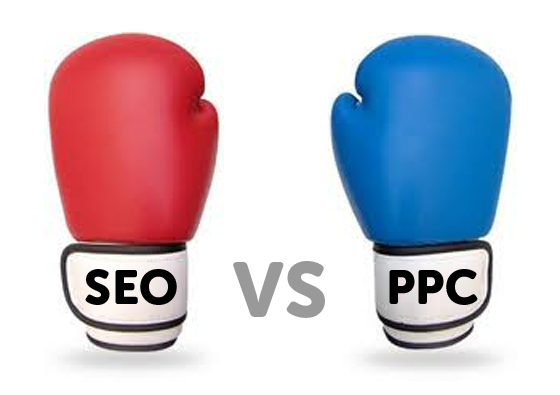
The Internet has become a major source for businesses and organizations to reach out to customers and generate revenue. Large or small, all businesses are quickly realizing the importance of online marketing, particularly search engine marketing (SEM). After all, according to a study conducted by Jupiter Research, 61% of all online users tend to find their destination through a search engine. This clearly shows how important it is for online businesses to maintain a strong and unyielding presence on search engines.
While it started out as an additional means adopted by companies to access customers and further their market share, search engine marketing tools like pay-per-click (PPC) and search engine optimization (SEO) have made the search engines to be a primary instrument for generating traffic to websites and landing pages by businesses.
When it comes to reaching prospects in order to boost traffic to your website via Google or any other search engine for that matter, marketers and business owners usually come down to two main choices – either opt for PPC advertising or embrace SEO. This is because both, SEO and PPC are a very potent tool marketers have in their arsenal.
However, there is still a huge dilemma marketers and business owners tend to find themselves in when it comes to SEM, i.e. whether to earn a natural presence through SEO or opt for a paid presence by choosing PPC.
Confused, already? Well, do not worry! Once you are done reading this blog post, you will be in a much better place with respect to how to let your target audience aware of your presence. But first, let us go through a brief overview on what SEO and PPC are really about. Then we will dive into the in-depth analysis and debate of which one should top your list.
What Is SEO?
SEO is all about getting your website to rank higher for keywords related to your business on major search engines like Google, Yahoo and Bing through organic search results. Search engines have algorithms that help determine where each page of your site ranks for various keywords. Since the search results are organic, you cannot pay for the placement on the SERP.
Because the competition is fierce for almost every query the user searches for, increasing the website ranking and visibility is quite challenging and dare I say, next to impossible. Thus, even though SEO traffic is ‘free’, SEO campaign requires the patience of a Saint to achieve the desired results.
To sum it up, with SEO, businesses are actually playing with the algorithm to get their site ranked higher than their competitors’ site on the SERP for the best keywords related to their industry and business.
What Is PPC?
PPC on the other hand takes a different route. It is a form of search engine marketing tool where marketers adopt search engine advertising in order to generate clicks or more suitably ‘buy’ visits to their company’s website. Thus, compared to the SEO approach where businesses tend to generate ‘natural clicks’, PPC strategy generates ‘paid clicks’.
Essentially, PPC is an online business model whereby advertisers pay a certain amount of fee to the website hosting their advertisement for every time a user clicks on their ads. It involves putting money behind certain keywords in order for your ad to appear on the paid results position on the SERP. The idea is that, the higher the position your ad is placed at, the more likely a user will be to click through your web page. Keep in mind though, the money you are to pay is based on the number of ‘clicks’ your ad gets, and not on the number of ‘views’ or ‘impressions’.
All in all, PPC is all about ‘paying’ for advertising space for specific target keywords on the SERP.
SEO or PPC: A Head to Head Comparison
While both SEO and PPC are a crucial part of search engine marketing (SEM) to drive quality traffic to websites, business owners cannot help but ask, ”Which one of the two is better?”
To answer your question, let us draw head to head comparison.
Cost
As mentioned earlier, traffic generated by SEO is ‘free’. However, I have also mentioned how the competition is severe for organic ranking and how businesses need to put in a lot of effort, dedication and hard work in order to come up with a full-fledged SEO campaign and generate free traffic from search engines. As such, businesses need to employ staff who are well versed in the art of SEO to fight for keywords with big corporations and even bigger budgets and resources they have at their disposal. Because every business owner starts an SEO campaign with the intention of getting ranked on the top spot, the competition for keywords will only get intense.
PPC traffic could be quite expensive especially if the campaign is not set up correctly. This might result in depleted budget and eventually a failed campaign. However, this is the worst case scenario. While you do have to pay for the clicks your ad receives, the good news is that you can determine the cost you are likely to incur beforehand and set up a budget accordingly.
Final word? Experts say that if you do not have any money to commit to advertising then your best bet is to stick to SEO even though you will be competing against corporations with endless resources to spare. However, if you have a little capital to spare, then you should invest in PPC advertising. This is because there is a better chance to instant traffic to your site, and eventually more conversions through PPC. Also with SEO, one can never guarantee protection from the ever changing algorithm changes which can make your site lose its ranking overnight.
Traffic Potential
Even though SEO traffic takes an exceptionally long time (months, if not more!) to generate traffic to your site, what with building page authority and indexing for the right search terms, there is no denying the fact that SEO traffic brings the most qualified leads. This is because besides the fact that top ranking on SEO will generate a lot of clicks and leads, customers tend to think of organic search results more highly. Compared to the ‘paid’ ads, organic results are considered more credible which results into consistent website traffic, making it possible for you to reap long term benefits like a higher return on investment (ROI). Keep in mind though that we are talking about a long term SEO strategy here.
For immediate results, PPC is the best. Once you have placed a paid ad, you can literally count the minutes before millions of visitors come cascading to your site. Reason being that the minute your PPC campaign is approved, your ad is displayed on top for everyone to see. Moreover, the traffic generated by PPC is highly targeted, more so than SEO traffic, as it narrows down your prospects to specific demographics like age, gender, education level, income bracket, etc. Thus, PPC tends to generate instant and highly targeted traffic.
Final word: It really depends on how soon and what type of a result you want. If you are looking for a strategy that works for the long haul, then SEO is best as the traffic generated through it is sustainable. On the other hand, if you wish to have instant results, then PPC is a better choice.
Conversion
Conversion is about the action you want your audience to complete. It does not necessarily have to be about the customer making a final purchase – it could be anything, from registering and signing up for email subscriptions, making the final purchase and anything in between.
Coming to the point, when it comes to conversion, because organic search results tend to attract the most clicks, it is safe to say that it also brings higher conversions, higher revenue and eventually a higher ROI. Moreover, compared to PPC, SEO’s return on investment (ROI) is expected to rise continuously long after PPC has peaked. Reason being that PPC’s traffic is more short-term oriented.
However, as discussed in the previous point, PPC can also bring in more conversions and ultimately a higher ROI as long as the ads are specific, accurately targeted, and highly optimized. Because ads which are highly targeted and optimized for your audience are likely to bring in clicks from your intended audience who are 100% interested in your content, the leads generated from them are likely to be of high quality. Thus, these quality leads have a better chance at converting, which results into more revenue, and ultimately a higher ROI. Just remember that when you turn off PPC, you are also turning off the traffic.
Final word: Again, it is the matter of what you are looking for, a long term strategy with sustainable ROI or an instant bump in the ROI? Frankly, it varies from business to business and goal to goal.
Ease of Use
If you are looking for a search engine marketing strategy that is easy to execute, you are going to be sorely disappointed. On one hand, SEO needs a long term dedication and unwavering commitment to establish site authority. There are going to be a million obstacles ready to halt your plans like keeping up with the algorithm updates – which can really shuffle the search results, causing all the time and effort to go down the drain – but one needs to be strong-willed to succeed with SEO.
On the other hand, in order to create a strong PPC ad strategy, one may need to learn the ropes on how to go about it and get the right training and certification or even hire a PPC expert to ensure that your PPC campaign is well optimized.
SEO or PPC: The Last Word
Torn between the battle of which one is the best, businesses fail to realize that they do not have to give up on PPC when choosing SEO and vice versa. You can, in fact, practice both at the same time. If done correctly, both practices can ensure your website and landing pages get a higher ranking on the SERP for your desired audience.
The best time to use PPC is when you have just launched your company and are in need to jump start your business’s digital marketing efforts. As long as you are willing to spend the money, you can dominate the top paid search results and benefit from an instant boost in traffic and ultimately an increase in ROI. However, work out the cost and do the math before you start designing your PPC campaign. Because often times, business owners fail to consider the average cost-per-clicks (CPC) in their industry resulting into failure to make a profit as costs-per-click for their desired keyword was too high.
When it comes to the long-term lifeline of your online marketing, however, it is best that you choose to focus on building your SEO campaign. Reason being that it offers the best value in search marketing in terms of site authority and consistency, as well as sustainable results.
While there are definite incentives of choosing PPC over SEO, do not forget that a long term SEO strategy is going to bring you the most quality leads. Furthermore, your SEO strategy is also going to help your PPC campaign as SEO entails on-page optimization tips like improved content, building links and in general, building the overall site health.
So the next time you are designing your search engine marketing strategy, keep in mind that SEO and PPC are stronger together. They each tend to cope with each other’s shortcomings.
About The Author
Dave Burnett
I help people make more money online.
Over the years I’ve had lots of fun working with thousands of brands and helping them distribute millions of promotional products and implement multinational rewards and incentive programs.
Now I’m helping great marketers turn their products and services into sustainable online businesses.
How can I help you?






